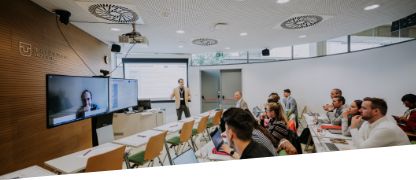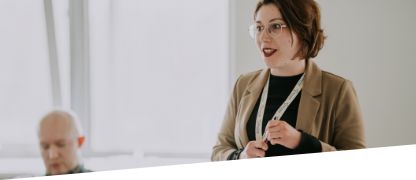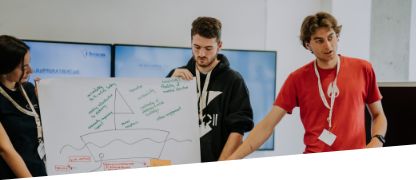SMILE application, selection and admission procedures
SMILE has been designed for people intending to work in the field of life sciences and engineering.
Candidates should have a scientific/technical/engineering or professional background related to the objective of the programme including, but not restricted to biosciences, food technology, environmental technology and other engineering disciplines.
All applications for admission will be submitted online, through the official application system of the SMILE website, which will be hosted on the Ulysseus web portal
General requirements for access
The following supporting documents will be uploaded into the application system:
- Copy of passport or identity card (front and back) Valid passport photo.
- Bachelor diploma, confirmation of prospective completion of studies or equivalent diploma of a 3-year degree program at a national / international higher education institution
OR
- Copy of the official university first cycle qualification from a HEI (Bachelor-EQF level 6, or equivalent) and transcript of academic records.
Considerations about the qualifications:
- For students coming from EHEA universities (including the eight Ulysseus university partners), Bachelor’s degrees will be automatically recognized, according to the Lisbon Recognition Convention and the Ulysseus Academic Recognition Framework Agreement (see additional Annex 18).
- Students with a Bachelor-equivalent qualification issued by a non-EHEA HEI must provide a document issued by their university that certifies the student’s level of studies and states that the diploma allows the student to access Master’s studies in the student’s university country. Students will be required to present officially certified copies and translations into English of the student’s diplomas and grades and an official certificate of the ECTS content of the subjects and of their position within their corresponding cohort. Successful admission to SMILE does not imply that the applicant’s previous qualification has been validated to a comparable EHEA qualification entitling rights or granted recognition for any other purposes than access to the Master’s degree program.
- If a candidate is in the process of obtaining the Bachelor’s degree, the applicant can apply for admission. The applicant must present a letter, written by his/her university, stating the expected date of graduation and a detailed transcript of records.
- Matura certificate / Highschool Certificate or other certificate of higher education entrance qualification, or most recent certificate available.
- Proof of B2 (CEFR) English level (accepted certificates are University of Cam-Certificates, TOEFL, IELTS, ACLES, among others).
- CV/ Résumé
- Motivation letter from the student explaining why she/he has selected the Master and describing purposes and interests (one page max.).
- Transcript of records
- [OPTIONAL] Recommendation letters from up to two references
- [OPTIONAL] Any other documents characterizing applicant’s credentials, like research projects, mathematical competitions diplomas, etc.

English level requirements
The Master’s programme is open to graduates of relevant Bachelor programmes and graduates from other recognized and relevant post-secondary educational facilities. English level B2, according to the CEFR (Common European Framework of Reference for Languages), proof of which must be provided as a supporting document. Candidates from countries where English is not an official language must demonstrate their knowledge of English by proving that they have received their education in English, or with a certified language level equivalent to B2 using the CEFR by one of the following options and grades:
IELTS: a minimum total score of 6.0 TOEFL (iBT): a minimum total score of 83 (at maximum two years old) PTE Academic: a minimum total score of 67 Cambridge C1 Advanced: a minimum total score of 170 Cambridge C2 Proficiency: a minimum total score of 170 ACLES C1: a minimum 50 % of the total score of every section
- IELTS: a minimum total score of 6.0
- TOEFL (iBT): a minimum total score of 83 (at maximum two years old)
- PTE Academic: a minimum total score of 67
- Cambridge C1 Advanced: a minimum total score of 170
- Cambridge C2 Proficiency: a minimum total score of 170
- ACLES C1: a minimum 50 % of the total score of every section
Application procedure and documentation
All applications for admission will be submitted on the Ulysseus SMILE website. This portal will allows students to upload all the the required documentation.
Considerations about the qualifications:
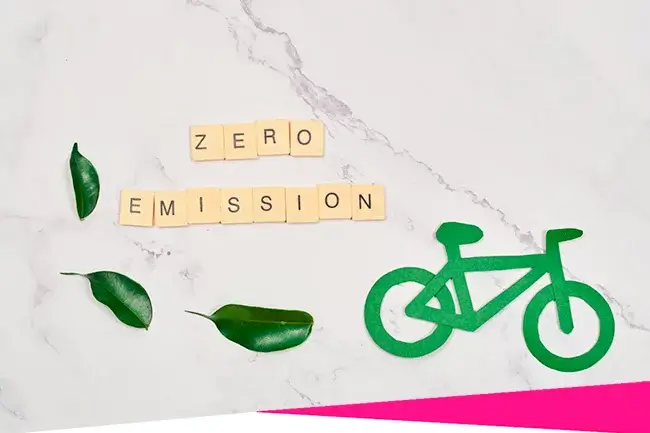
Applicants with a Bachelor-equivalent qualification issued by a non-EHEA HEI must provide a document issued by their university that certifies the level of studies of the applicant and stating that the diploma allows the applicant to access to Master studies. Applicants need to present officially certified copies and translations into English of their diplomas and grades and an official certificate of the ECTS content of the subjects.
Successful admission to SMILE does not imply that the applicant’s previous qualification has been validated to a comparable EHEA qualification entitling rights or granted recognition for any other purposes than access to this Master’s degree program.
Documentation to be submitted to the Studyinfo.fi online application portal:
- Academic results of the student (typical requirement: Grade Point Average). This can be modulated according to the contents and the perceived level of the subjects carried out
- Relevant work experience related to the field of the Master programme and other merits, as stated in the CV, taking into consideration the candidate age.
- Merits such as volunteering and civic engagement activities will be also considered
- Motivation letter by the student English level +B2 and/or knowledge of national languages of the Ulysseus consortium (minimum B2) (up to 5 points).
- Other merits according to the criteria of the Selection Committee, including linguistic and cultural diversity, inclusiveness, and gender equality
- Personal or online interview with the selection committee. In this interview the basic scientific background of the applicant, transversal skills, motivation, communication skills, and his/her English level will be evaluated
- OPTIONAL: Recommendation Letter
For applicants coming from EHEA universities (including the Ulyssesus university partners), Bachelor’s degrees will be automatically recognized, according to the Lisbon Recognition Convention and the Ulyssesus Academic Recognition Agreement.
Selection Process
After the deadline for applications, the SMILE Selection Committee will evaluate them. The admission policy is intended to ensure equal opportunity of access to higher education for qualified European and Third country students.
It is the responsibility of the SMILE Coordinator in Innsbruck, to process all documents sent by the applicants of each intake and to make them available to all members of the selection committee for evaluation.
Applications will be ranked according to the following criteria, rated on a scale of 0 to 100.
In a first round the Selection Committee will select those applicants who meet the Admission Requirements and afterwards will establish a ranking considering merits 1 to 7 (according to the above list). Each applicant’s motivation statement, and CV will be evaluated independently by three different members of the Selection Committee to avoid individual bias.
According to this first evaluation round, the best 80 applicants will be selected for the second evaluation round which will be the personal interview with at least two members of the selection committee. The result of the interview will add up to 40 more points to the candidate’s final score.
Finally, the Committee will formulate a proposal of 50 candidates who will be accepted into the Master, as well as a reserve list. As soon as the list is approved, all students (accepted or not) will be informed by e-mail by the Joint Master Coordinator. Each accepted student will also be notified by an official e-letter when the student’s admission to the Master’s programme is confirmed. The letter will be accompanied by a brief description of the master’s course, with reference to its joint character and organization and any other information that may help to complete the paperwork necessary to obtain visas, official permits, etc.
The student must confirm their commitment to pursuing the programme by sending a signed commitment document via e-mail.

Parts and Scores of the Selection Process:
To ensure the clearness and transparency of the selection process, every applicant will have the right to know their final position according to the following scheme:
Group I: Applications of very good quality (score higher than 75 points out of 100).
Group II: Applications of good quality (score between 60 and 75 points out of 100).
Group III: Applications of weak quality (score less than 60 points out of 100).
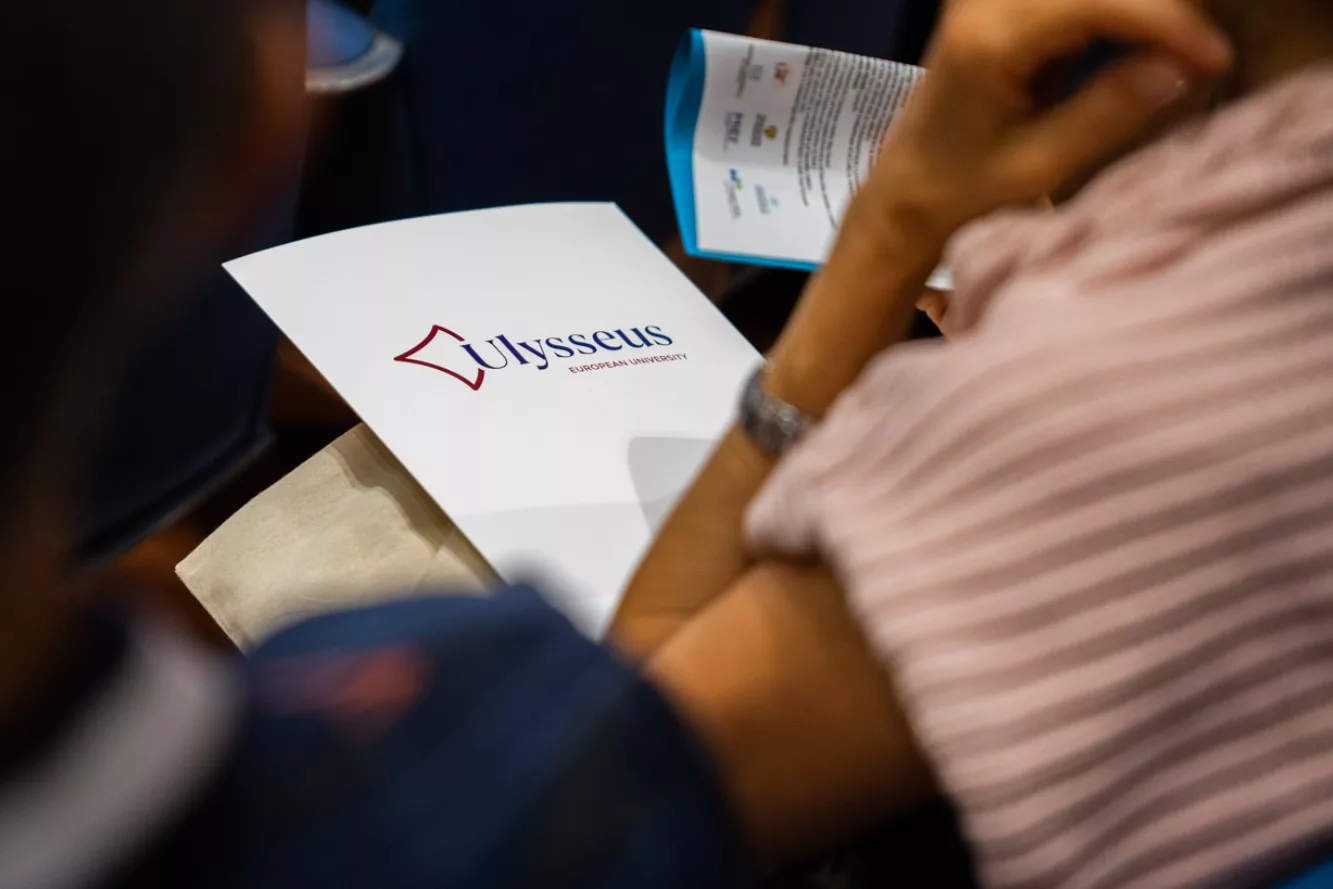
Transparency of the access and admission
SMILE ensures transparency of the access and admission processes by publishing the exact application criteria on the Ulysseus SMILE website. Through the ranking procedure of the application process, transparency is ensured as explanations for each scores will be established, and can be provided ad hoc.
Equal Opportunities Policy
SMILE is committed to fostering diversity, inclusion, access and equity, through tailored admission measures for all categories of disadvantaged or discriminated groups (ethnic minorities, people with migration backgrounds, or with disabilities, people from poor families, or students of low-qualified parents, among others).
This policy is promoted in a three-fold approach:
- The specific score given within the selection criteria (up to 10 points)
- The Selection Committee will have the right to reserve a 5% quota of every first-year intake to promote diversity, inclusion, and gender equality.
- SMILE will facilitate recognition of qualifications and prior learning to students with different cultural backgrounds, in order to improve social inclusion and diversity.
Funding

SMILE has received funding from the Erasmus+ programme of the European Union. The views and opinions expressed in this communication are the sole responsibility of the authors and do not necessarily reflect the views of the European Commission.

